Back when the library was shut down, I was digging through some boxes and stumbled across my old dictionary (the fancy kind that has the little tabs for the different letters), and it reminded me of an assignment I had to do for my tenth grade English class. I know—the last thing anyone wants to think about right now is school related stuff, but I remembered this activity as being pretty fun, so I figured I’d give it another shot and write up the instructions here for anyone who wants to try it as well.
The premise: found poetry, using random words from a dictionary.
Pretty cool, right? Well, even if poetry isn’t really your thing, this might be a fun activity to try, because it’s probably going to end up twisting your brain into weird shapes as you try to make some pretty strange word combinations work together.
1. Unearth your dictionary (and other materials)
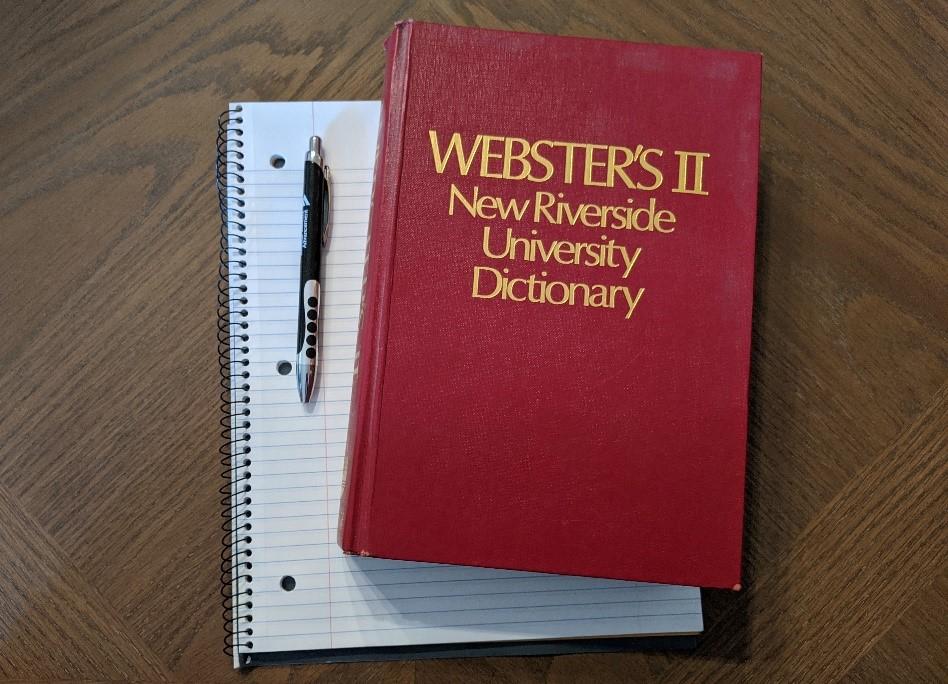
If you're anything like me, you most likely primarily use online dictionaries these days. But if you have access to an old-school printed one, I’d recommend pulling it out; there’s something especially satisfying about doing this part by hand. If you’re not a fan of that or don’t happen to have an old dictionary lying around at home, there are plenty of websites online that will randomly generate words for you, along with a definition. I would recommend RandomWord.com, because it allows you to filter by adjectives, nouns, verbs, and more.
Alternatively, if you'd like to try something a little different you can use some of our eSources, such as Gale in Context: Middle School. You can click on the "Browse Topics" button for particular topics, rather than just finding random words.
Beyond the dictionary (or website), all you’ll need for this is paper and a pen/pencil, or an open tab in Microsoft Word or Google Drive. That’s it!
1.5. Check the copyright page and realize the dictionary was printed over a decade before you were born; have a minor existential crisis.
2. Choosing your random words
This is probably the most fun part, in my opinion, and here’s what you need to do:
- Close your eyes
- Flip the dictionary open to a random page
- Put your finger down on a random spot on the page
- Open your eyes
- Find the word closest to where your finger is
Congratulations, you’ve found your first word! Now, repeat this as many times as you’d like (I’d recommend anywhere from 10 to 15 total words), compiling the list as you go along. If you’d like, you can jot down a short definition with the word, so you don’t have to keep looking it up in order to know what it means.
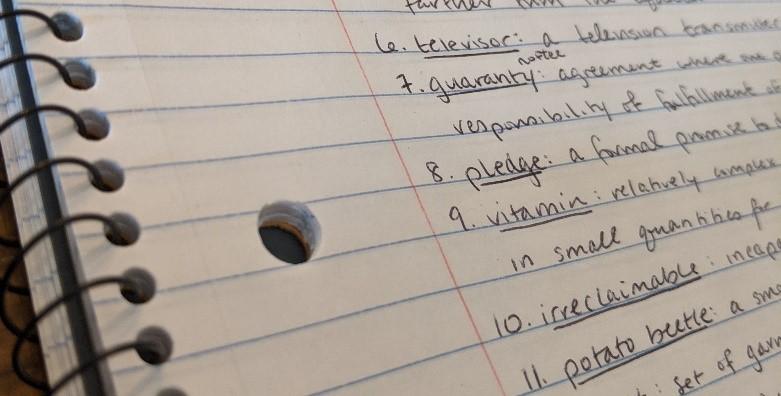
If you choose to use an eSource, I would recommend navigating to the "Browse Topics" page, then closing your eyes and randomly scrolling up and down for several seconds. When you stop, open your eyes and pick the topic closest to your cursor.
My list ended up including the following words:
- Electroacoustics
- Neodymium
- Stellar
- Anxious
- Mercator projection
- Televisor
- Guaranty (Note: not guarantee)
- Pledge
- Vitamin
- Irreclaimable
- Potato beetle
- Suit
- Glockenspiel
- Friendswood
- Aeronautics
Quite an eclectic mix. My dictionary apparently includes sections on biographic and geographic entries, which is where #14 (Friendswood, TX) came from. A lot of the words also ended up being pretty science-oriented too; I’m not sure if that’s because it’s a “University Dictionary,” or if that would've been the case using a different dictionary.
3. Pick words from the list for your poem
Now, you can use all the words you pulled out if you’d like, but that might be a little difficult depending on what your list ended up looking like. If you’d rather use a smaller group, you can pick a few (I’d recommend at least 5 to 7), either by random assortment again, or by some sort of overarching theme, if you can create one from your word list.
This doesn’t have to happen all right now, either! It’s entirely possible that, as you move on to the next step you’ll end up finding that, even though you really wanted to use a particular word, you couldn’t quite make it fit. That’s part of the fun of this exercise.
And finally, onto the poetry…
4. Write your poem!
Most of us aren’t future poet laureates (myself included), so it’s alright if your poem isn’t the next great masterpiece. A lot of poems created through this method will end up being more funny or nonsensical than anything, and that’s okay. That’s great, even! It’s about being creative, not perfect.
It took me a few tries to get started (and I cheated just a little with the idea of my poem), but it turned out alright, if a bit silly. I’ve included it below (and feel free to laugh). I ended up using eleven of the fifteen words, which isn’t too bad!
A Librarian Opens A Dictionary
Sounds like the opening line of a joke, right?
A librarian opens a dictionary
and pulls up a seat between
electroacoustics (Technology, 600s—or Music, 780s?)
and glockenspiel (Music, 780s—or Germany, 900s?),
Waffles between choosing Aeronautics or Vitamin
and finally settles on a Mercator projection.
They are handed a glass that looks like it
got the wrong end of a fun house mirror.
Despite appearances, there’s more liquid in
the bottom than at the top.
The librarian pays with a chunk of neodymium
(Science, 500s) and on their way out, tries
not to crush a potato beetle under foot.
Compliments him instead on his stripes,
but doesn’t offer to lend him their dictionary when he asks
(He pledges not to eat the pages, but the
H. bibliothecarius is an anxious species
and doesn’t want their books to become irreclaimable).
A librarian closes a dictionary, but doesn’t notice
the stellar anomaly overhead, too preoccupied
with the fact that this joke doesn’t have a punchline.
5. Share your poem on social media
If you write your own poem, don't be afraid to share it with us on social media! You can tag @alachualibrary on Facebook, Twitter, or Instagram to show off what you've written.
Books
I've also rounded up some awesome books that have to do with poetry, including fiction, collections, and how-to books. The how-to books aren't specifically about poetry, but they both include sections on how it works and best practices. Click on the image that catches your attention, or check out the summaries and links below.
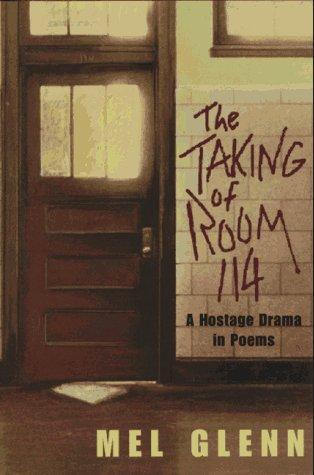
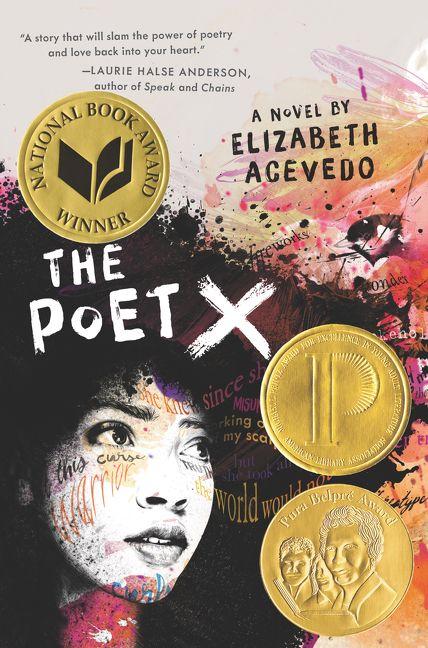
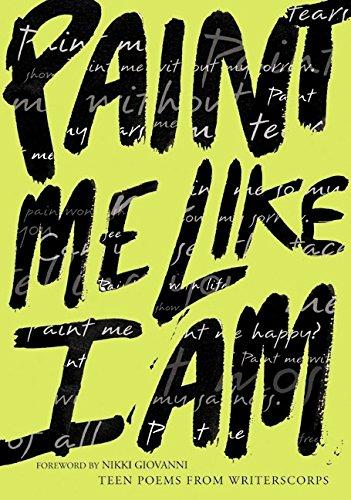
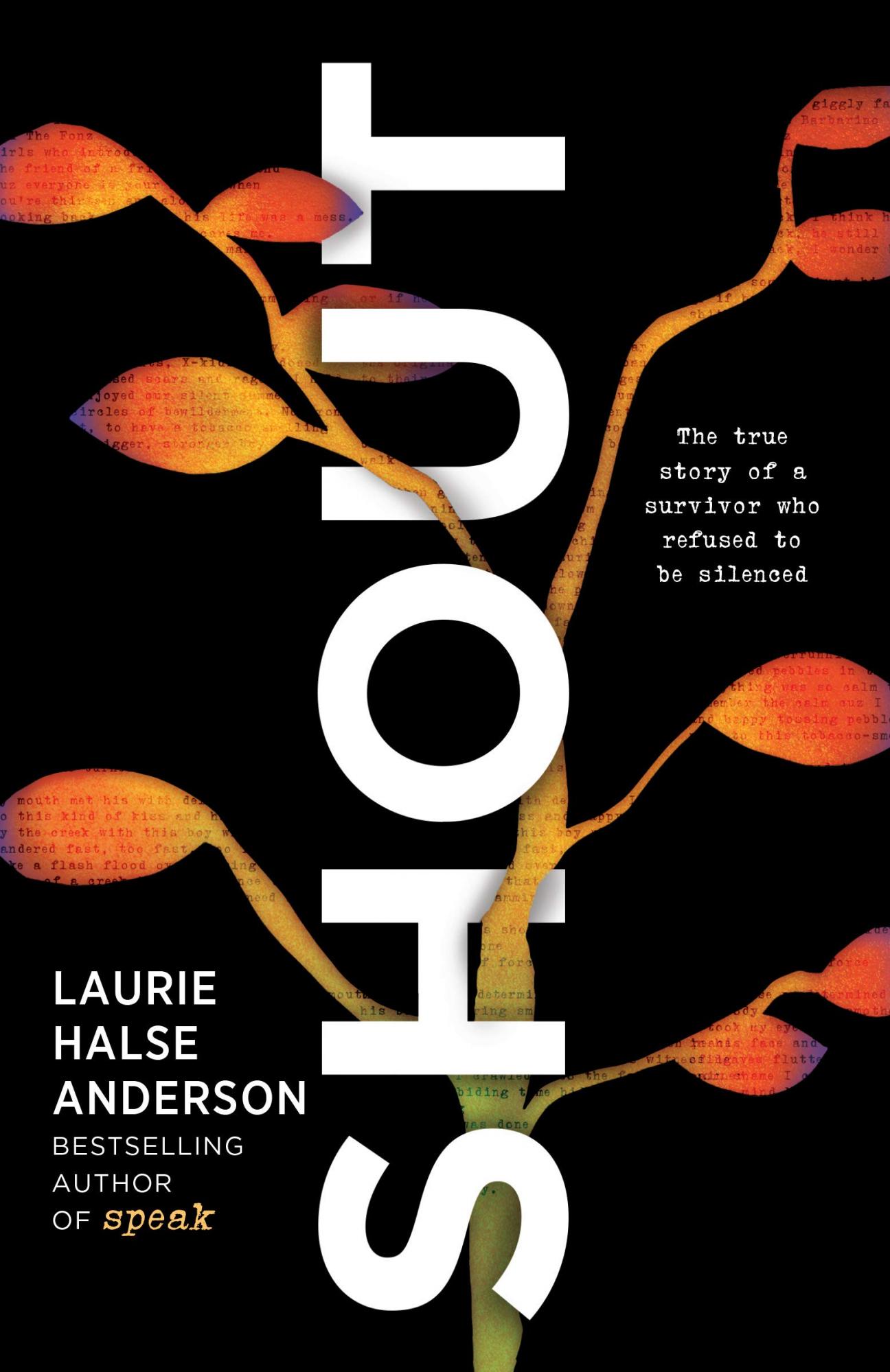
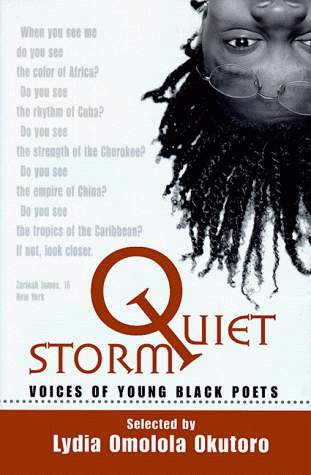
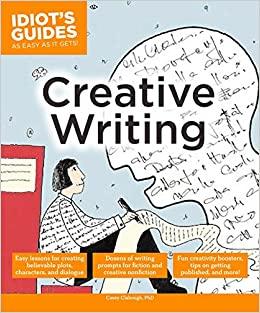
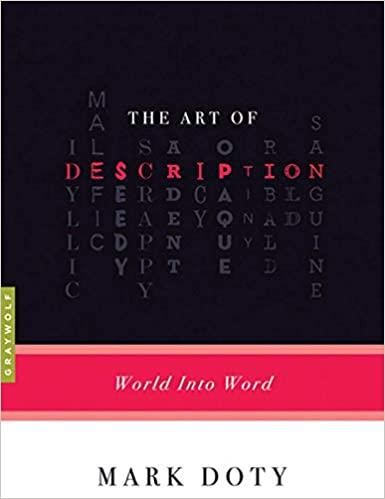
Fiction
The Taking of Room 114: A Hostage Drama in Poems by Mel Glenn | A series of poems reflect the thoughts of school officials, parents, police, and a class of high school seniors who have been taken hostage by their teacher.
The Poet X by Elizabeth Acevedo | Xiomara Batista feels unheard and unable to hide in her Harlem neighborhood. Ever since her body grew into curves, she has learned to let her fists and her fierceness do the talking, and pours her heart into her poetry.
Collections
Paint Me Like I Am: Teen Poems | Paint Me Like I Am is a collection of poems by teens who have taken part in writing programs run by a national nonprofit organization called WritersCorps. To read the words of these young people is to hear the diverse voices of teenagers everywhere.
Shout: A Poetry Memoir by Laurie Halse Anderson | Bestselling author Laurie Halse Anderson is known for the unflinching way she writes about, and advocates for, survivors of sexual assault. In free verse, Anderson shares reflections, rants, and calls to action woven between deeply personal stories from her life.
Quiet Storm: Voices of Young Black Poets selected by Lydia Omolala Okutoro | This stunning poetry collection encourages readers from all cultures to explore the many threads of their own ancestral roots. Marker poems by well-known poets, such as Langston Hughes, introduce each themed section of the book.
How-To
Creative Writing by Casey Clabough | Provides an introduction to creative writing, and includes literary examples to help find a niche as well as quizzes to challenge and stimulate creative thinking.
The Art of Description: World into Word by Mark Doty | "It sounds like a simple thing, to say what you see," Mark Doty begins. "But try to find words for the shades of a mottled sassafras leaf, or the reflectivity of a bay on an August morning, or the very beginnings of desire stirring in the gaze of someone looking right into your eyes..."